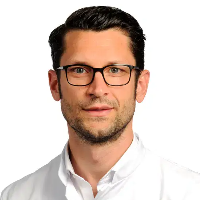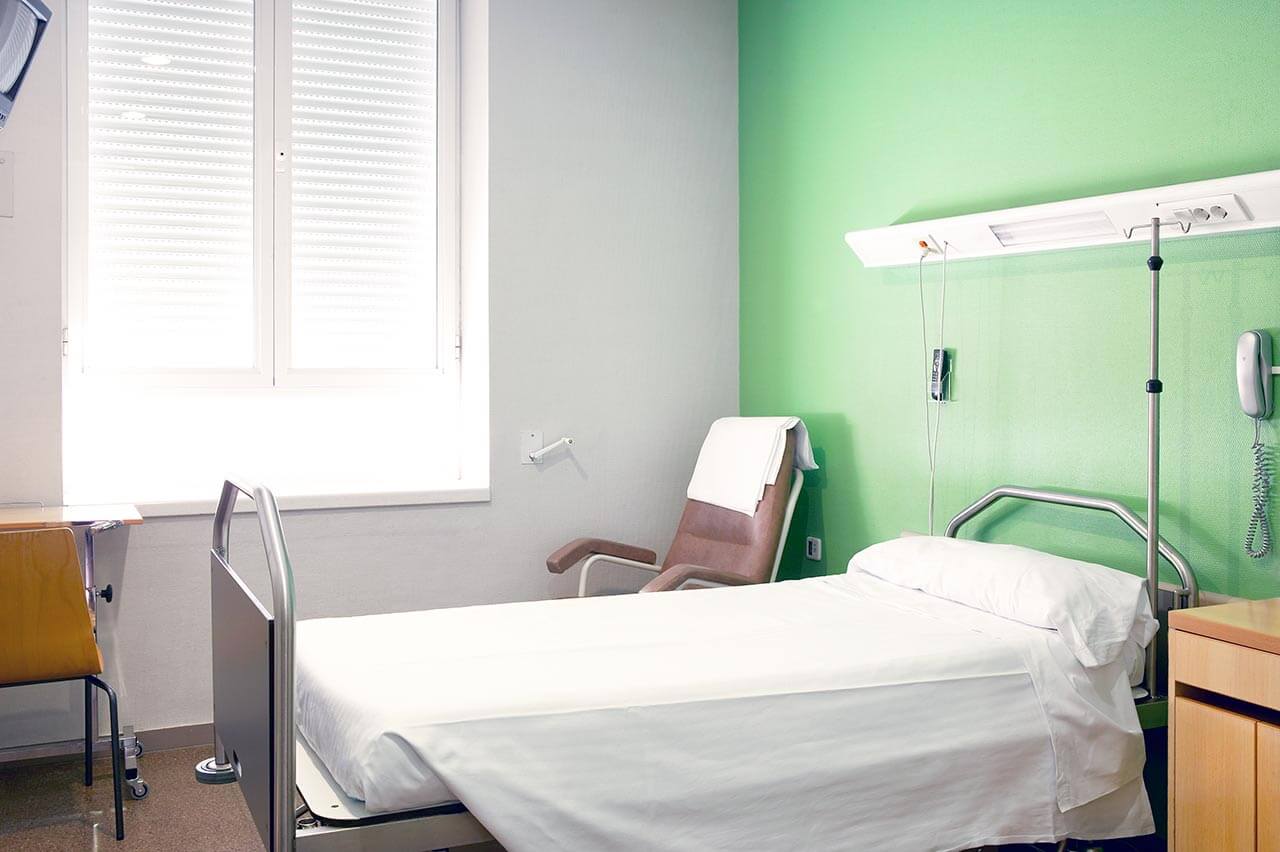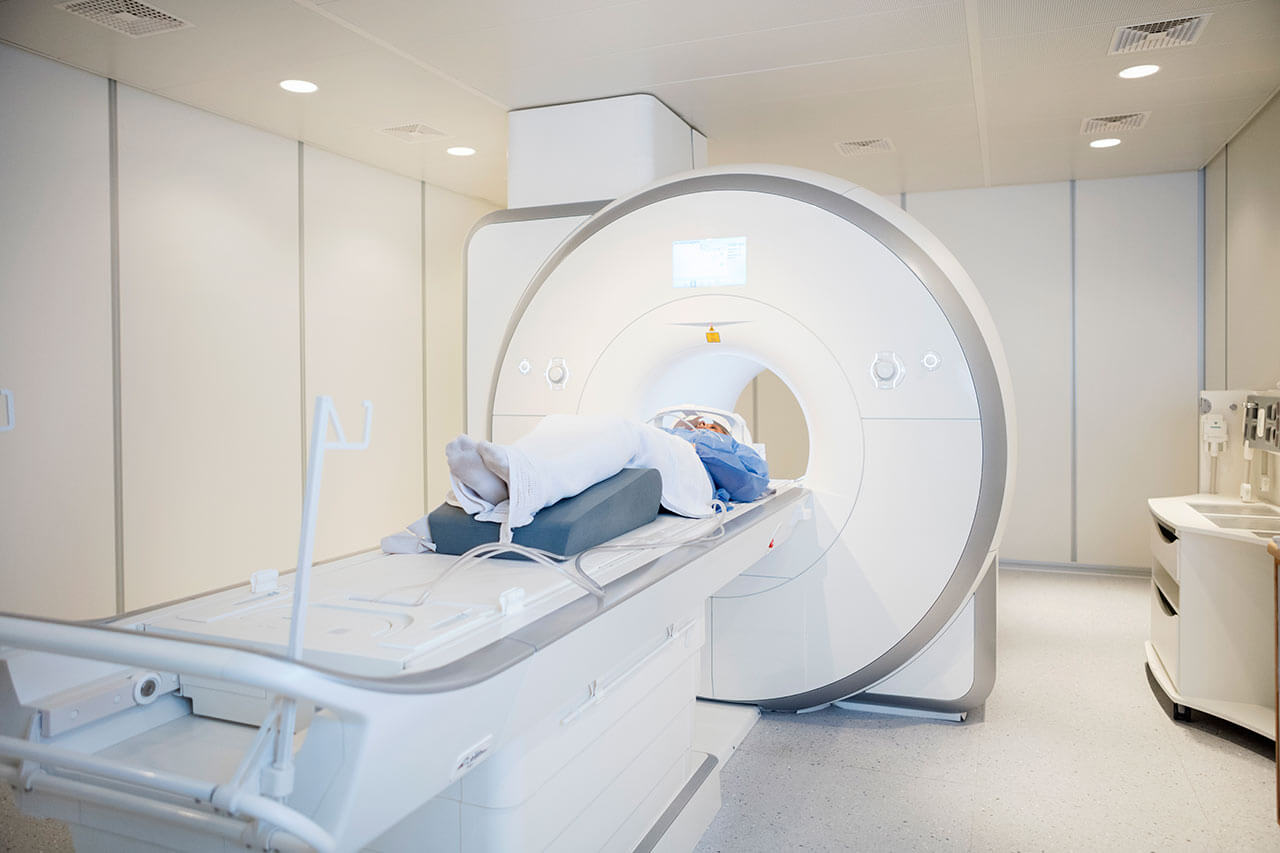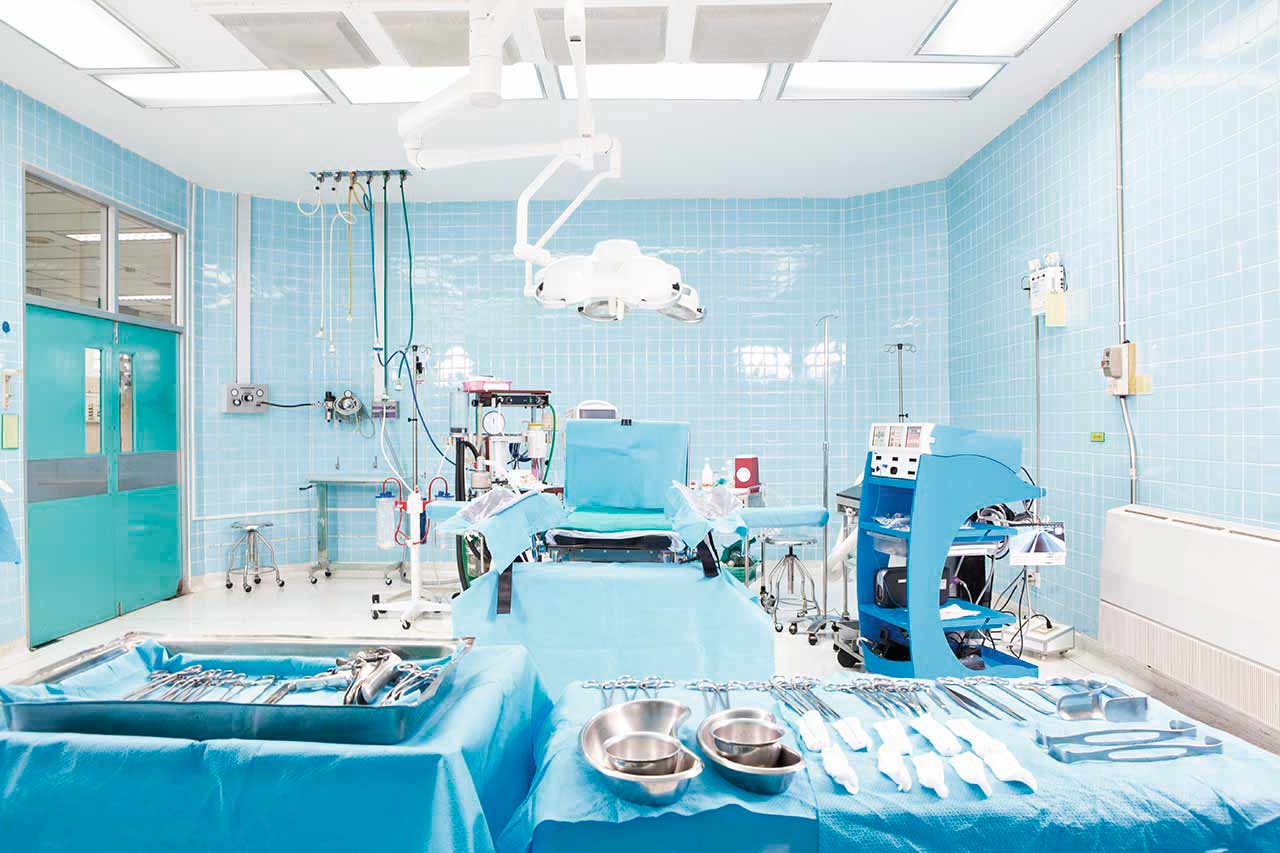
The program includes:
- Initial presentation in the clinic
- clinical history taking
- review of medical records
- physical examination
- x-ray examination of the foot
- CT/MRI (if clinically indicated, additional cost is 650/1200€)
- nursing services
- consultation of related specialists
- treatment by chief physician and all leading experts
- explanation of individual treatment plan
- written statement
Required documents
- Medical records
- MRI scan (if available)
Service
You may also book:
 BookingHealth Price from:
BookingHealth Price from:
About the department
The Department of Adult and Pediatric Orthopedics, Foot Surgery at the University Hospital of Ludwig Maximilian University of Munich carries out accurate diagnostics, effective conservative and surgical treatment of the full range of diseases of the musculoskeletal system. The department's medical team's responsibilities also include physiotherapy and rehabilitation activities. Surgery for orthopedic diseases is performed in state-of-the-art operating rooms equipped for sparing minimally invasive and arthroscopic interventions. There are also treatment rooms for physiotherapy, including a room with a pool for swimming and physical exercises in the water, and rooms with modern exercise equipment. The excellent infrastructure allows doctors to provide high-quality treatment of diseases of the joints, tendons, and bones, thereby restoring patient mobility as quickly as possible. The department admits patients of all age groups, including children and adolescents. The medical facility has been awarded many prestigious quality certificates, including DGOU, endoCert, and EPRD certificates, and has an impeccable reputation in Germany. The department is headed by Prof. Dr. med. Boris Holzapfel.
Of particular interest to the department's orthopedists are patients with joint diseases. Pathological lesions of the knee, hip, shoulder, elbow, and ankle joints cause severe pain and stiffness of movements, which negatively affects the quality of human life. Doctors successfully treat joint diseases with conservative methods like pills, intra-articular injections, and physiotherapy procedures. When dealing with severe pathological changes in the joints, the department's specialists perform surgical interventions. As of today, open joint surgery is practically not performed in the medical facility since surgeons have advanced equipment and the necessary professional skills to perform low-traumatic arthroscopic interventions. The department's orthopedists regularly perform arthroscopic operations on the hip joint in patients with impingement syndrome, articular labrum injuries, free articular bodies, inflammatory processes, etc. When performing arthroscopic interventions, surgeons make two small incisions about 1 cm in size. The duration of the surgical procedure is 1-2 hours. A hospital stay after surgery usually does not exceed 2 days. Within 2 weeks after arthroscopic surgery, a patient must limit the load on the joint using crutches. Thus, arthroscopy is a sparing treatment method, while its effectiveness is not inferior to that of classical open surgery.
The department offers its patients high-quality services for knee and hip replacement surgery. The medical facility has the status of a certified Maximum Care Joint Replacement Center, which successfully implants prostheses for primary and secondary osteoarthritis, as well as performs revision interventions to replace previously implanted prostheses. Joint replacement surgery is usually performed with minimally invasive techniques, which significantly reduces surgical risks and the duration of a hospital stay. The department's orthopedists use in their work only high-quality prostheses from well-established world manufacturers. The service life of the prosthesis is 15-20 years.
The department's specialists have gained rich clinical experience in treating musculoskeletal tumors. Bone and soft tissue sarcomas are treated by a team of doctors from related specialties, such as orthopedists, oncologists, including pediatric ones, surgeons, radiologists, radiation therapists, and plastic surgeons. Doctors take a responsible approach to treatment planning, so they regularly gather for tumor boards, during which they develop an optimal treatment regimen. A surgical intervention to resect a malignant neoplasm remains the basis of therapy today, which, if possible, is performed using the least traumatic method. In some cases, chemotherapy and/or radiation therapy can also be carried out, usually to prevent the onset of metastases or to suppress the growth of already existing metastatic lesions. When necessary, reconstructive plastic surgery can be performed to eliminate bone and soft tissue defects after tumor resection.
The specialists in pediatric orthopedics most often treat young patients with hip dysplasia. This is a congenital pathology caused by the impaired formation of joint elements such as the acetabulum, the femoral head, and the surrounding muscles, ligaments, and joint capsule. In most cases, children with hip dysplasia are indicated only for conservative treatment, such as the use of the Tubinger hip abduction brace orthosis or Pavlik's stirrups. If this treatment option is not effective enough, a surgical intervention will be performed. The department's orthopedists offer the following modern operations: Salter osteotomy, Dega and Pemberton acetabuloplasty, the Ganz procedure, and an arthroscopic operation. The optimal type of surgical intervention is selected for each child based on the data obtained during the clinical and instrumental examinations.
The department's therapeutic options are supplemented by treating foot and ankle diseases. Orthopedists treat patients with Achilles tendon ruptures, Achillodynia, Charcot arthropathy, heel spurs, flat feet, hallux rigidus, hallux valgus, Morton's neuroma, ankle joint arthrosis, chronic ankle instability, and other pathologies. The doctors have in their arsenal many conservative and surgical options for treating patients with the above-mentioned diseases. The specialists always prefer conservative therapy or minimally invasive surgery.
The department’s main clinical focuses include:
- Conservative treatment
- Drug therapy with pills
- Intra-articular injections
- Physiotherapy and rehabilitation measures
- Multimodal pain management programs
- Surgical treatment
- Arthroscopic interventions
- Knee arthroscopy
- Meniscal injuries and lesions
- Cruciate ligament injuries and lesions
- Cartilage lesions
- Articular cartilage lesions and degenerative changes in the knee joint in elderly patients
- Shoulder arthroscopy
- Shoulder arthrosis
- Shoulder instability and dislocation
- Rotator cuff tear
- Frozen shoulder syndrome
- Shoulder impingement syndrome
- Hip arthroscopy
- Hip impingement
- Articular labrum injuries
- Free joint bodies
- Inflammatory processes
- Cartilage lesions
- Knee arthroscopy
- Knee and hip joint replacement surgery, including revision arthroplasty
- Knee replacement surgery
- Hip replacement surgery
- Postoperative recovery based the effective Fast Track program
- Surgical treatment of orthopedic diseases in children
- Surgery for hip dysplasia
- Surgery for hip disorders in childhood and adolescence (for example, Perthes disease)
- Surgery for congenital clubfoot and foot deformities
- Surgery for limb length discrepancy and axial deformities
- Surgery for benign and malignant bone and soft tissue tumors
- Surgery for aseptic necrosis
- Surgery for joint and bone infections
- Surgical treatment of benign and malignant musculoskeletal tumors
- Minimally invasive and open surgery followed by plastic surgery
- Surgical treatment of spinal diseases
- Image-guided blocks for chronic back pain
- Surgery for degenerative spinal diseases: spinal stenosis, spondyloarthritis, and erosive intervertebral osteochondrosis
- Surgery for scoliosis and kyphosis in adults and children
- Surgery for spina bifida in children
- Surgical treatment of foot and ankle diseases
- Surgery for foot diseases
- Charcot arthropathy
- Heel spurs
- Flat feet
- Hallux rigidus
- Hallux valgus
- Morton's neuroma
- Surgery for ankle diseases
- Achilles tendon rupture
- Achillodynia
- Ankle arthrosis
- Chronic ankle instability
- Sprained ankle
- Ankle impingement syndrome
- Ankle cartilage pathological lesions
- Ankle fractures
- Surgery for foot diseases
- Arthroscopic interventions
- Other medical services
Curriculum vitae
Higher Education
- 2007 Admission to medical practice.
- 2002 - 2007 Human Medicine studies, University Hospital of Ludwig Maximilian University of Munich.
- 2000 - 2002 Human Medicine studies, University of Regensburg.
Professional Career
- Since 2021 W3 Professor for Orthopedics at the Ludwig Maximilian University of Munich and Head Physician of the Department of Adult and Pediatric Orthopedics, Foot Surgery at the University Hospital of Ludwig Maximilian University of Munich.
- 2018 - 2021 Managing Senior Physician, Department of Endoprosthetics, King Ludwig Orthopedic Clinic, Department of Orthopedics, University of Wuerzburg.
- 2018 W2 Professor for Translational Orthopedic Surgery at the Department of Orthopedics, University of Wuerzburg.
- 2017 - 2018 Senior Physician, King Ludwig Orthopedic Clinic, Department of Orthopedics, University of Wuerzburg.
- 2017 Habilitation, Department of Orthopedics, University of Wuerzburg.
- 2016 Board certification in Orthopedics and Traumatology, King Ludwig Orthopedic Clinic, Department of Orthopedics, University of Wuerzburg.
- 2015 Associate Professor for Regenerative Medicine, Queensland University of Technology, Brisbane, Australia.
- 2015 PhD in Biomedical Engineering, Institute of Health and Biomedical Innovation, Queensland University of Technology, Brisbane, Australia.
- 2012 - 2015 Postdoctoral Fellow, German Research Foundation (DFG), Regenerative Medicine Group, Institute of Health and Biomedical Innovation, Queensland University of Technology, Brisbane, Australia.
- 2011 - 2012 Assistant Physician, King Ludwig Orthopedic Clinic, Department of Orthopedics, University of Wuerzburg.
- 2010 - 2011 Assistant Physician, Department of General, Abdominal, Vascular and Pediatric Surgery, University Hospital Wuerzburg.
- 2009 - 2010 Assistant Physician, Department of Traumatology, Hand Surgery, Plastic and Reconstructive Surgery, University Hospital Wuerzburg.
- 2007 - 2009 Teaching in Orthopedics, Kerschensteiner Vocational School (part-time).
- 2008 thesis defense, Ludwig Maximilian University of Munich.
- 2007 - 2009 Assistant Physician, Department of Orthopedics and Traumatology, University Hospital Rechts der Isar Munich.
- 2003 - 2005 Researcher, Institute of Anatomy.
Clinical Interests
- Joint-preserving hip surgery.
- Minimally invasive hip and knee arthroplasty.
- Revision hip and knee arthroplasty.
- Treatment of musculoskeletal tumors.
- Regenerative medicine.
Prizes, Awards and Distinctions
- Austria-Switzerland-Germany (ASG) Fellowship from the German Society for Orthopedics and Orthopedic Surgery (DGOOC).
- 2018 Poster Award for the Best Experimental Work from the German Society for Orthopedics and Traumatology (DGOU).
- 2018 Research Day Award from the Arthroscopy Working Group (AGA).
- 2015 Carla Patterson Publication Award.
- 2014 Award for "the most impactful research paper in their field" from the Company of Biologists.
- 2014 Fundamental Research Award from the German Society for Orthopedics and Traumatology (DGOU).
- 2010 Poster Award from the Association for Basic Research of the German Society for Orthopedics and Orthopedic Surgery (DGOOC).
Memberships in Professional Societies
- German Society for Orthopedics and Orthopedic Surgery (DGOOC).
- German Society for Orthopedics and Traumatology (DGOU).
- Association for Basic Research of the German Society for Orthopedics and Traumatology (DGOU).
- Endoprosthetics Working Group (AE).
- Group for Musculoskeletal Tumors from the German Society for Orthopedics and Traumatology (DGOU).
- German-Chinese Society for Orthopedics and Traumatology (DCGOU).
Photo of the doctor: (c) LMU Klinikum
About hospital
According to the Focus magazine, the University Hospital of Ludwig Maximilian University of Munich is regularly ranked among the best medical institutions in Germany!
The hospital is the largest multidisciplinary medical facility, as well as a leading research and training center in Germany and Europe. The hospital is proud of its bicentenary history and tirelessly confirms its primacy at the national and international levels. The outstanding quality of medical care is complemented by highly productive research activities, thanks to which many effective diagnostic and therapeutic methods, saving people’s lives, have been presented in medical practice.
The medical facility includes two main buildings, Grosshadern and Innenstadt. The hospital has 29 specialized departments, 53 interdisciplinary centers, 11 institutes, and many sections. More than 500,000 patients are treated here every year, which indicates the hospital's excellent reputation. A large and highly professional medical team, consisting of 1,800 doctors and 3,300 nursing staff, works for the benefit of patients. The hospital has 2,000 beds to accommodate patients.
The hospital's infrastructure deserves special attention: advanced diagnostic equipment that allows doctors to detect the slightest pathological changes in the human body, the latest operating rooms with highly efficient monitoring systems, robot-assisted surgical systems that facilitate sparing operations, and proper postoperative care.
Excellent technical resources and highly professional medical staff are undoubtedly the hospital's pride, but the medical facility also pays attention to the patient's comfort and to a humane attitude toward their life situation. When providing the necessary medical care, doctors and nursing staff always show a friendly attitude, inform patients in detail about the upcoming diagnostic and therapeutic procedures, gladly answer all questions of interest to patients, and provide moral support during the therapeutic process.
The hospital has many prestigious quality certificates, including a DIN EN ISO 9001 certificate, an IQM certificate, an endoCert certificate, certificates from the German Cancer Society (DKG) for treating various types of cancer, the German Cardiac Society (DGK), the German Society for Orthopedics and Trauma Surgery (DGOU), etc. Thus, patients can count on the best possible treatment outcome due to the use of the most effective and, at the same time, sparing therapeutic techniques.
Photo: (с) depositphotos
Accommodation in hospital
Patients rooms
The patients of the University Hospital of Ludwig Maximilian University of Munich live in comfortable, spacious, single and double patient rooms with a modern design. Each room is equipped with an ensuite bathroom with a shower and toilet. The furnishing of a standard patient room includes a comfortable bed, the position of which can be adjusted using the remote control, a locker for storing personal belongings, a TV, and a telephone. Also, if desired, you can connect to the Internet. In addition, patients can opt for enhanced-comfort rooms, with a safe, a fridge, and upholstered furniture.
The hospital has an excellent infrastructure. The medical facility’s area houses a bank, ATMs, a hairdresser, shops with a wide range of food, drinks, newspapers, magazines, and personal hygiene items, play areas for children, and a beautiful garden for walking, etc.
Meals and Menus
The patient and his accompanying person are offered a daily choice of three menus, including a vegetarian one. If you are on a specific diet for any reason, you will be offered an individual menu. Please inform the medical staff about your dietary preferences prior to the treatment.
Further details
Standard rooms include:
Religion
Religious services are available upon request.
Accompanying person
Your accompanying person may stay with you in your room or at a hotel of your choice during the fixed program.
Hotel
You may stay at a hotel of your choice during an outpatient program. Our managers will help you to choose the best option.
The hospital offers a full range of laboratory tests (general, hormonal, tests for infections, antibodies, tumor markers, etc.), genetic tests, various modifications of ultrasound scans, CT scans, MRI and PET/CT, angiography, myelography, biopsies, and other examinations. Treatment with medications, endoscopic and robotic operations, and stereotaxic interventions are carried out here, modern types of radiation therapy are also used. The hospital offers patients all the necessary therapeutic techniques.
- Allogeneic bone marrow transplantation
- Microsurgical transplantation of head and neck tissues
- Microsurgical resection of brain tumors with intraoperative fluorescence
- Minimally invasive treatment of spine pathologies
- Joint replacement with postoperative rehabilitation (fast track program)
Patients with benign and malignant neoplasms of various localizations, pathologies of arteries and veins, herniated discs, osteoporosis, congenital and acquired pathologies of the musculoskeletal system, benign and malignant pathologies of the mammary gland, and other pathologies.
Which specialties of the University Hospital of Ludwig Maximilian University of Munich are the best?
- Interventional and diagnostic neuroradiology
- Vascular surgery
- Cardiac surgery
- Mammalogy
- Gastroenterology and hepatology
Over 1,700 highly qualified doctors work at the hospital.





